Keywords: Man Box
There are more than 200 results, only the first 200 are displayed here.
-
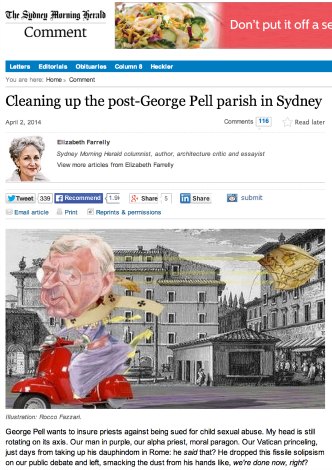
RELIGION
- Frank Brennan
- 22 April 2014
30 Comments
I write to defend Cardinal Pell in the wake of Elizabeth Farrelly's claim in the Fairfax press that Pell, when appearing before Justice McClellan at the Royal Commission, proposed a 'priestly child abuse insurance scheme'. Pell is not one of my fans, and neither am I one of his. But I think Farrelly has unfairly kicked him when he is down, and muddied the waters about what is a critical issue for the victims of child sexual abuse.
READ MORE 
-
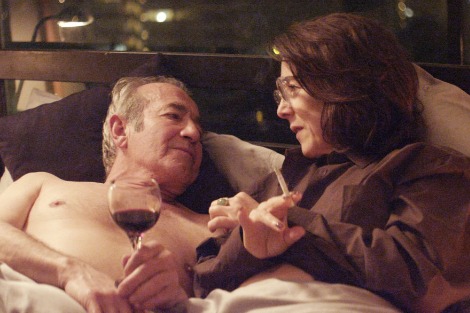
ARTS AND CULTURE
- Tim Kroenert
- 20 March 2014
3 Comments
A new film follows the experiences in 1961 of German-American Jew and political theorist Hannah Arendt, who coined the phrase 'the banality of evil' in relation to Nazi 'desk-murderer' Adolf Eichmann. The cerebral nature of Hannah Arendt provides a counterpoint to another current film about a strong, flawed woman: Gloria is remarkable for the way it unabashedly honours the emotional and sexual lives of its older characters.
READ MORE 
-
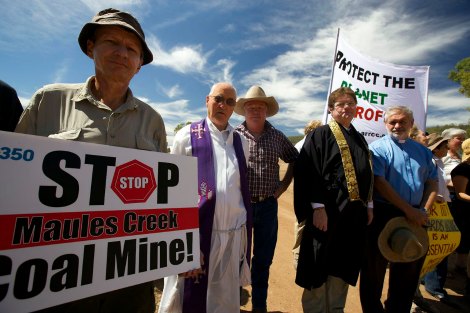
ENVIRONMENT
- Thea Ormerod
- 19 March 2014
14 Comments
The arrest last week of three identifiably religious people drew attention again to Whitehaven's new coal mine site at Maules Creek, in northern NSW. Why did these people of faith feel it was time to put their bodies on the line? Simply put, when the law is fully harnessed to keep in place a system that many consider to be immoral, the most ethical action is peaceful, non-violent disobedience.
READ MORE 
-
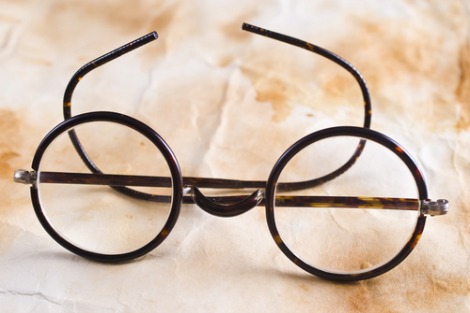
ARTS AND CULTURE
- Brian Doyle
- 04 March 2014
9 Comments
So let us review: a man sent me a deft wedding gift even though I was the man who was marrying the girl his son had loved for years ... The dad was sad when the young couple broke up. But he was delighted that she was married to someone she loved, he told me years later, and of course he sent me a present, out of affection for her and respect for me ... So it was that yet again I learned about grace, and about being an actual man ...
READ MORE 
-
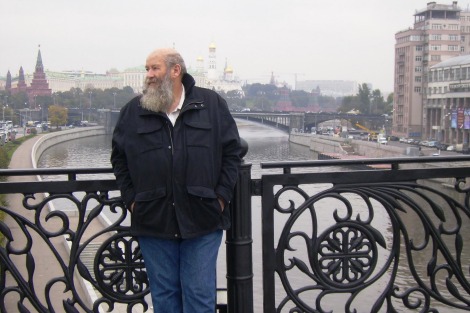
INTERNATIONAL
- Howard Willis
- 19 February 2014
6 Comments
On the occasions I got into detailed discussions with strangers in Moscow, a pattern emerged. Saying I was Australian prompted a polite request for clarification: 'But your ancestry?' The reply that I was fifth-generation Australian was treated as an evasion, or met with the assumption that my ancestors were 'bandits'. Generally, Muscovites took a second look at me and the box they ticked was 'Jew'.
READ MORE 
-
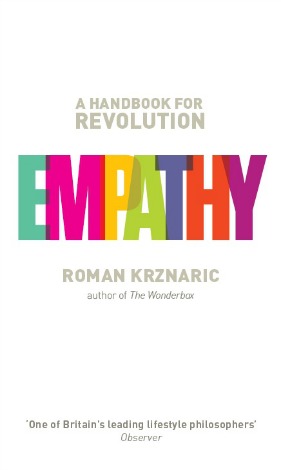
ARTS AND CULTURE
- Barry Gittins and Jen Vuk
- 14 February 2014
3 Comments
While realpolitik can drive us beyond a healthy scepticism to cynicism and indifference, British cultural thinker Roman Krzaric contends that when we look beyond the real — through imagination, creativity, vulnerability and networking — we can bring about the ideal of 'empathy on a mass scale to create social change' and even go about 'extending our empathy skills to embrace the natural world'. Without dreamers like Krzaric, we're stuffed.
READ MORE 
-
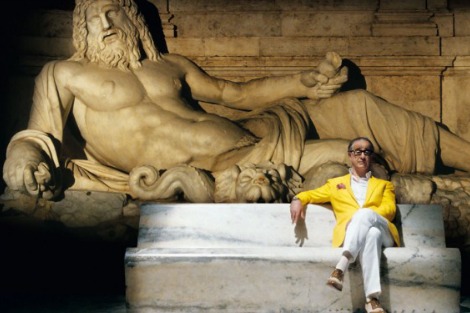
ARTS AND CULTURE
- Tim Kroenert
- 30 January 2014
5 Comments
The cardinal is senseless to the libertine Jep's enquiries about faith, and prone to missing ordinary human connections in the midst of his politicking and self-obsession. If this is an unflattering reflection of institutional Catholicism, it finds its counterpoint in an ancient nun known as the Saint, whose humility reveals to Jep the possibility of transcendence.
READ MORE 
-
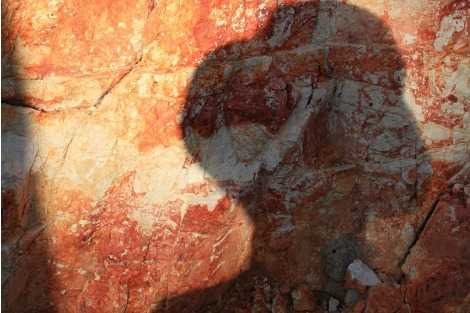
AUSTRALIA
- Ailsa Piper
- 22 January 2014
17 Comments
I'm fifth generation Australian, but I don't have a word to describe the emotional malnutrition I feel at our leaders' lack of vision. Maybe there are words for such feelings in Yamatji, or Eora, or Noongar, but most of us wouldn't know. This was a place with more linguistic individuation than Europe, before our boat-people ancestors arrived, but they didn't take the time to learn its words or hear its stories.
READ MORE 
-

RELIGION
- Irfan Yusuf
- 09 January 2014
1 Comment
Ramadan is supposed to fine tune your soul, weaken the ties binding you to your physical appetites and test your religiosity. This month unites Muslims around the globe in an envelope of piety and mercy. At least that's the theory. In reality, for most of us Muslims Ramadan is the month of massive weight gain.
READ MORE 
-
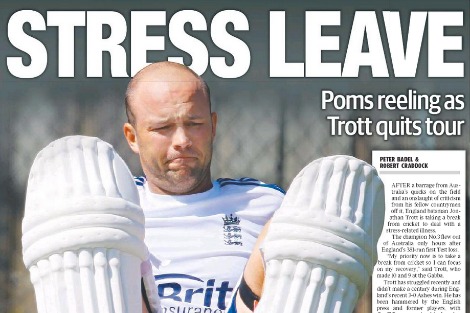
AUSTRALIA
- Michael Mullins
- 02 December 2013
2 Comments
English batsman Jonathan Trott was pilloried in some media comments because he abandoned his team because he felt 'stressed'. We should be celebrating the fact that a high profile male sportsman finds that he can declare he has a stress-related illness and then seek help for it.
READ MORE
-

ARTS AND CULTURE
- Prue Gibson
- 27 November 2013
1 Comment
The car park is a concrete cave, a holding cell, a sarcophagus. From the outside, it looks like other buildings, but inside, there are darker, deeper modalities. I wind down to sub level four. Free spaces, empty rows: I savour the desolate and bare space. 'Hey you,' shouts someone from up ahead. A man, in well-groomed suit pants with a snappy vest, strides towards me. I glance around at level four. There are almost no cars to be seen.
READ MORE 
-
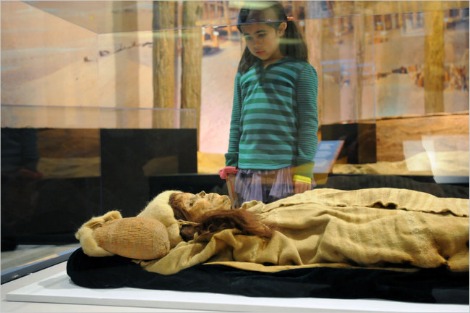
ARTS AND CULTURE
- Lorraine McGuigan
- 19 November 2013
2 Comments
Laid out with care this woman lifted from a dry river-bed. Here is death but also preservation: turned-up nose, high cheekbones, long lashes fringing her sunken eyes ... Beside her a child staring, close to tears, hands bunched into fists ... a six-year-old girl and this ageless beauty. Rising between them the dust of centuries.
READ MORE 